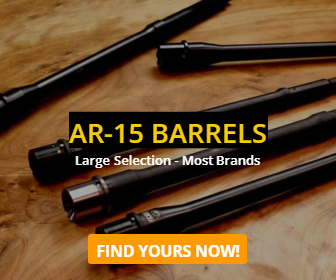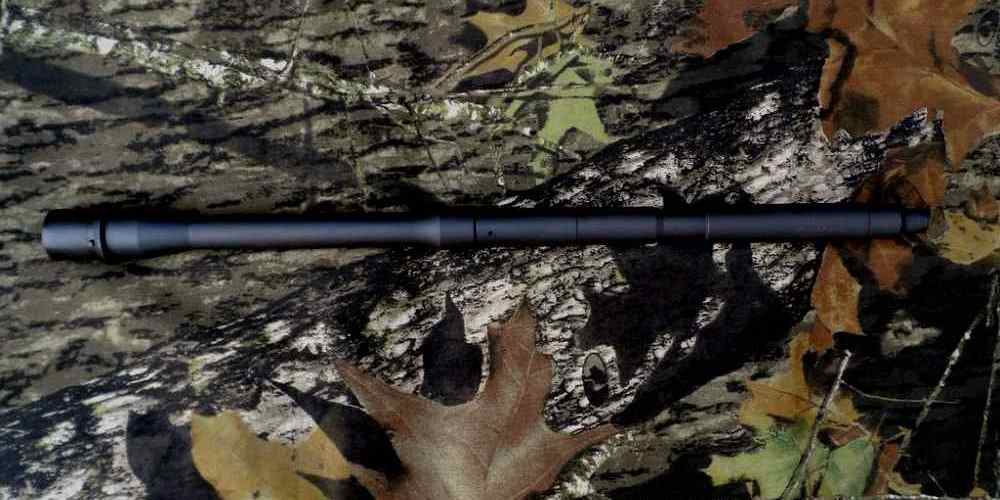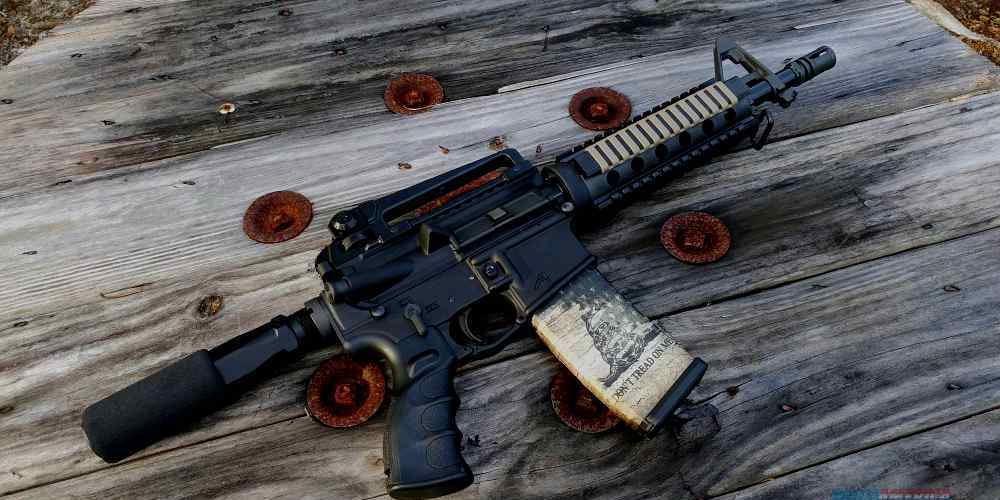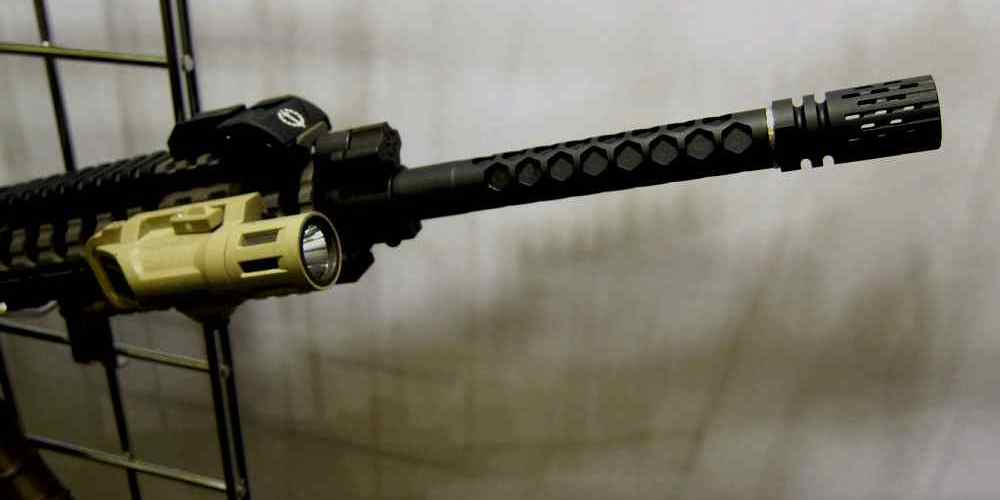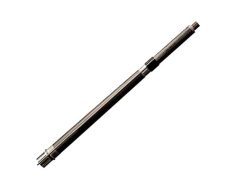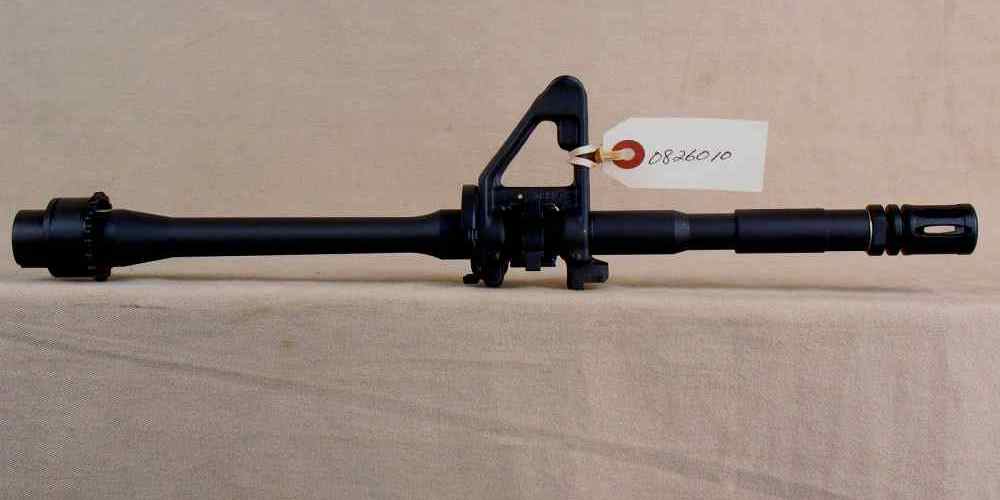“Experience Unmatched Durability and Precision – Choose Cold Hammer Forged Barrels for Your AR15”
The Benefits of Cold Hammer Forged Barrels for AR15 Performance
Cold Hammer Forged Barrels: Is It the Best Choice for Your AR15?
When it comes to customizing or building an AR15, one of the most critical components to consider is the barrel. The barrel plays a pivotal role in the accuracy, longevity, and overall performance of the rifle. Among the various manufacturing processes for barrels, cold hammer forging has gained a reputation for producing some of the most durable and precise barrels available. But is a cold hammer forged barrel the best choice for your AR15? Let’s delve into the benefits of this process and how it can enhance your shooting experience.
Cold hammer forging is a process that involves shaping a barrel’s bore and exterior by hammering a steel rod over a mandrel, which imprints the rifling into the bore. This is done at room temperature, hence the term “cold.” The intense pressure and deformation caused by the hammers work-harden the steel, compacting the grain structure and creating a barrel that is exceptionally resilient to the stresses of firing. This method contrasts with traditional cut or button rifling, where material is removed to create the grooves.
One of the primary advantages of cold hammer forged barrels is their inherent durability. The work-hardening effect significantly enhances the barrel’s resistance to wear and tear, meaning it can withstand thousands of rounds more than a standard barrel before accuracy degrades. This makes it an excellent choice for high-volume shooters or those who use their AR15 in rugged conditions.
Moreover, the uniformity of the rifling created during the forging process is second to none. The precision with which the rifling is imprinted onto the bore ensures a consistent bullet spin rate, which is crucial for accuracy. The result is a barrel that can provide tighter groupings and more predictable trajectories, a boon for both competitive shooters and hunters alike.
Another benefit of cold hammer forged barrels is their improved heat dissipation. The dense, compacted steel conducts heat more efficiently, allowing the barrel to cool faster between strings of fire. This is particularly beneficial during rapid fire or sustained shooting sessions, where excessive heat can lead to a decrease in accuracy and potential damage to the barrel.
Despite these advantages, it’s important to note that cold hammer forged barrels may come with a higher price tag compared to other manufacturing methods. However, the investment can be justified by the extended lifespan and performance gains. Additionally, not all shooters may require the level of durability and precision offered by these barrels. Casual shooters or those on a budget may find that a less expensive barrel meets their needs adequately.
In conclusion, cold hammer forged barrels offer a suite of benefits that can significantly enhance the performance of your AR15. Their exceptional durability, accuracy, and heat management make them a top choice for those who demand the most from their rifle. While they may represent a more significant initial investment, the longevity and reliability they provide can make them a more cost-effective option in the long run. Whether you’re a competitive shooter, a hunter, or someone who enjoys recreational shooting, a cold hammer forged barrel could be the best choice for ensuring that your AR15 performs at its peak potential.
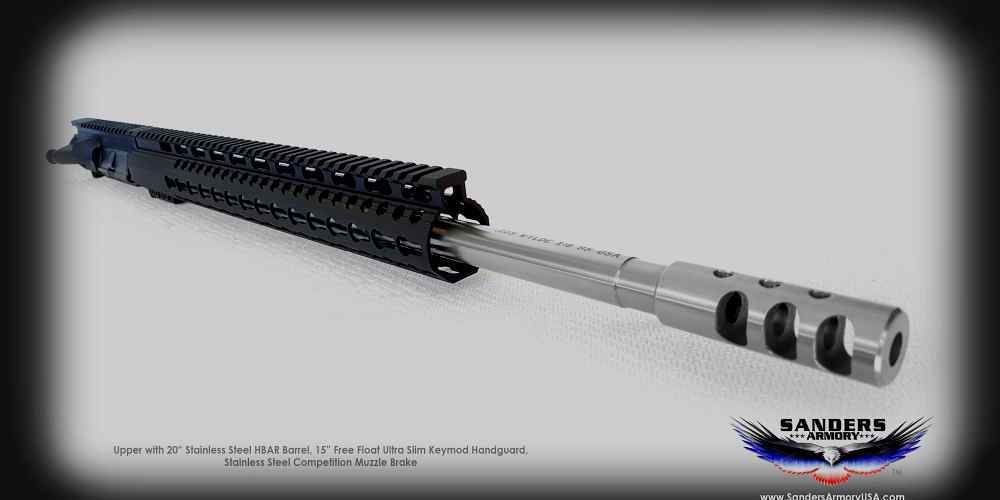
Comparing Barrel Manufacturing Techniques: Cold Hammer Forging vs. Others
Cold Hammer Forged Barrels: Is It the Best Choice for Your AR15?
When it comes to selecting the perfect barrel for your AR15, the manufacturing process is a critical factor that can significantly affect the performance, durability, and accuracy of your firearm. Among the various techniques employed to craft barrels, cold hammer forging has gained a reputation for producing some of the most resilient and precise barrels available. But is it the best choice for your AR15? To answer this question, we must delve into a comparison of barrel manufacturing techniques, particularly cold hammer forging versus other methods.
Cold hammer forging is a process that involves shaping a barrel around a mandrel, which is a metal piece engraved with the inverse of the desired rifling. The barrel blank is hammered by powerful machines, causing the metal to plasticize and take on the shape of the mandrel, including the rifling pattern. This process not only creates the rifling but also compresses the metal, aligning the grain structure of the steel in a way that enhances strength and durability. The result is a barrel that can withstand high pressures and maintain its accuracy over a high round count.
Moreover, cold hammer forged barrels exhibit a longer service life compared to those manufactured by other methods. The intense pressure and deformation of the metal during forging work-harden the steel, making it more resistant to wear and tear. This is particularly beneficial for high-volume shooters or those who use their AR15 in harsh conditions.
On the other hand, other barrel manufacturing techniques, such as button rifling and cut rifling, have their own merits. Button rifling involves pulling a button through the barrel blank, which imprints the rifling pattern as it goes. This method is less expensive and still produces accurate barrels, but the barrels may not be as durable as those made by cold hammer forging. Cut rifling, the oldest method, involves removing material from the barrel blank to create the rifling. It allows for precise control over the rifling dimensions and is favored by precision shooters, but it is a time-consuming process and typically results in a more expensive barrel.
Another alternative is the use of stainless steel barrels, which are known for their exceptional accuracy due to the uniformity of the steel. Stainless steel barrels are often manufactured using button or cut rifling and are a popular choice for competition shooters who prioritize precision over extreme durability.
Transitioning back to cold hammer forged barrels, it’s important to consider the type of shooting you’ll be doing. If you’re a competitive shooter who demands the utmost accuracy, a stainless steel barrel with cut rifling might be your best bet. However, if you’re looking for a barrel that will endure a high volume of fire and rough handling, a cold hammer forged barrel could be the ideal choice.
In conclusion, while cold hammer forged barrels are renowned for their robustness and longevity, the best choice for your AR15 ultimately depends on your specific needs and preferences. Each manufacturing technique has its advantages, and the discerning shooter will weigh these against their intended use, budget, and performance expectations. Whether you opt for the ruggedness of cold hammer forging or the precision of alternative methods, understanding the nuances of barrel manufacturing will guide you to the right decision for your AR15.
The Lifespan of Cold Hammer Forged Barrels in AR15 Rifles
Cold Hammer Forged Barrels: Is It the Best Choice for Your AR15?
When it comes to building or upgrading an AR15, one of the most critical components to consider is the barrel. The barrel plays a pivotal role in the accuracy, longevity, and overall performance of the rifle. Among the various manufacturing processes for barrels, cold hammer forging has gained a reputation for producing some of the most durable and reliable barrels available. But is a cold hammer forged barrel the best choice for your AR15? Let’s delve into the lifespan of these barrels to help you make an informed decision.
Cold hammer forging is a process that involves shaping a barrel’s bore and exterior by hammering a mandrel through a heated steel barrel blank. This action not only forms the rifling but also compresses and elongates the metal, aligning the grain structure of the steel in a way that enhances strength and durability. The result is a barrel that is incredibly resistant to the pressures and heat generated by repeated firing.
One of the primary advantages of cold hammer forged barrels is their extended lifespan. The intense forging process creates a denser, more uniform steel structure, which translates to a barrel that can withstand a significant number of rounds before showing signs of wear. In fact, cold hammer forged barrels are often reported to maintain their accuracy and structural integrity beyond 20,000 rounds, a figure that is notably higher than that of barrels manufactured through other methods such as button rifling or cut rifling.
Moreover, the cold hammer forging process imparts a level of hardness to the steel that is unmatched by other manufacturing techniques. This hardness is crucial for maintaining the precise dimensions of the bore and rifling over time, which is essential for consistent accuracy. The process also creates a smoother internal finish, reducing friction and wear on the bullet as it travels down the barrel, thereby contributing to the barrel’s longevity.
Another factor to consider is the barrel’s resistance to heat. The intense pressures and temperatures generated during rapid firing can be detrimental to barrel life. Cold hammer forged barrels, with their superior grain structure, are better equipped to dissipate heat and resist thermal erosion. This means that even under heavy use, such as in competitive shooting or tactical scenarios, these barrels are less likely to suffer from heat-induced degradation.
However, it’s important to note that while cold hammer forged barrels offer exceptional durability, they are not immune to the effects of poor maintenance. Regular cleaning and proper care are still essential to ensure the longest possible service life. Neglecting to clean the barrel can lead to the buildup of residues that can accelerate wear and reduce accuracy over time.
In conclusion, when considering the best barrel choice for your AR15, the impressive lifespan of cold hammer forged barrels is a compelling factor. Their ability to maintain structural integrity and accuracy over tens of thousands of rounds makes them an excellent investment for those who demand reliability and performance from their rifle. While they may come with a higher initial cost compared to other barrels, the extended service life and consistent accuracy they provide can offer greater value in the long run. Whether you’re a competitive shooter, a tactical operator, or an enthusiast looking for top-tier performance, a cold hammer forged barrel could indeed be the best choice for your AR15.
How Cold Hammer Forged Barrels Affect AR15 Accuracy and Precision
Cold hammer forged barrels have become a popular choice among AR15 enthusiasts and for good reason. The process of cold hammer forging involves shaping the barrel’s bore by literally hammering it around a mandrel, which imprints the rifling into the barrel without removing any material. This method not only creates a highly durable barrel but also one that can offer superior accuracy and precision. But is it the best choice for your AR15? Let’s delve into how cold hammer forged barrels can affect the performance of your rifle.
Firstly, the cold hammer forging process results in a denser and more uniform grain structure within the steel. This uniformity is crucial for maintaining consistency in barrel performance, which directly translates to accuracy. When a bullet travels down the bore, any inconsistency in the material can affect its trajectory. Therefore, the homogeneity of a cold hammer forged barrel ensures that each shot has the potential to follow the same path, enhancing the rifle’s precision.
Moreover, the intense pressure used during the forging process work-hardens the steel, making it more resilient to the stresses of firing. This increased durability means that cold hammer forged barrels typically have a longer lifespan compared to their counterparts, such as those made by button rifling or cut rifling. A longer-lasting barrel maintains its accuracy over more rounds fired, which is an essential consideration for high-volume shooters or those who rely on their AR15 for professional use.
Another aspect to consider is the internal finish of the barrel. Cold hammer forging tends to create a smoother surface inside the bore, reducing friction as the bullet travels. This smoothness not only aids in achieving a more consistent velocity but also helps in reducing fouling. A barrel that accumulates less fouling will maintain its accuracy for longer periods between cleanings, which is particularly beneficial for those in competitive shooting or in situations where field maintenance might be limited.
However, it’s important to note that while cold hammer forged barrels offer many benefits, they are not the sole factor in determining a rifle’s accuracy. The quality of the ammunition, the shooter’s skill, and the overall build of the AR15 all play significant roles. Additionally, cold hammer forged barrels can be more expensive due to the complexity of the manufacturing process. This cost may not always translate to a noticeable difference in performance, especially for casual shooters or those on a budget.
In conclusion, cold hammer forged barrels are indeed a strong contender for the best choice in enhancing the accuracy and precision of your AR15. Their uniform grain structure, increased durability, and smoother internal finish contribute to a more consistent and reliable shooting experience. However, it’s essential to weigh the benefits against the cost and consider how much value it will add to your specific shooting needs. Whether you’re a competitive shooter, a professional operator, or a recreational enthusiast, understanding the impact of a cold hammer forged barrel on your AR15’s performance will help you make an informed decision and potentially elevate your shooting experience to the next level.
Choosing the Right Barrel for Your AR15: The Case for Cold Hammer Forging
When it comes to customizing an AR15, one of the most critical components to consider is the barrel. The barrel not only plays a pivotal role in the accuracy and range of the rifle but also in its overall durability and performance. Among the various methods of barrel manufacturing, cold hammer forging (CHF) has gained a reputation for producing some of the most resilient and precise barrels available. But is a cold hammer forged barrel the best choice for your AR15? Let’s delve into the details to understand why this method might be the ideal option for your firearm.
Cold hammer forging is a process that involves shaping the barrel around a mandrel, which is a metal object that imprints the rifling pattern into the barrel’s interior. The barrel blank is hammered by powerful machines, causing the metal to plasticize and take on the shape of the mandrel. This process not only creates the rifling but also compresses the metal, making it denser and stronger. The result is a barrel with a consistent and finely crafted interior, which is essential for maintaining accuracy over time.
One of the primary advantages of CHF barrels is their exceptional durability. The intense pressure and deformation of the metal during the forging process create a grain structure that follows the contour of the barrel, enhancing its ability to withstand the pressures and heat generated by repeated firing. This means that a cold hammer forged barrel can typically endure a higher round count before showing signs of wear compared to barrels manufactured by other methods, such as button rifling or cut rifling.
Moreover, the precision of cold hammer forging lends itself to improved accuracy. The uniformity of the bore and the smoothness of the rifling contribute to a more consistent bullet trajectory. This is particularly beneficial for shooters who demand tight groupings and reliable performance, whether they are engaged in competitive shooting, hunting, or tactical applications.
Another consideration is the cost-effectiveness of CHF barrels. While they may come with a higher initial price tag compared to other types of barrels, the longevity and reduced need for replacement can make them a more economical choice in the long run. For those who shoot frequently or rely on their AR15 for professional use, investing in a cold hammer forged barrel can be a wise decision that pays off over time.
However, it’s important to note that not all shooting applications require the robustness of a CHF barrel. Casual shooters or those who fire their AR15s less frequently may find that other barrel types, such as those made with less expensive manufacturing processes, are sufficient for their needs. Additionally, the weight of a CHF barrel can be slightly more than that of other barrels, which might be a consideration for those who prioritize a lightweight build.
In conclusion, when choosing the right barrel for your AR15, the case for cold hammer forging is strong. Its unparalleled durability, accuracy, and long-term value make it an attractive option for many shooters. While it may not be necessary for every AR15 owner, those who demand the utmost in performance and reliability from their rifle would do well to consider a cold hammer forged barrel. As with any firearm customization, it’s essential to weigh your specific needs and preferences against the benefits and costs of different barrel types. But for those in search of excellence, a cold hammer forged barrel is certainly worth considering.


